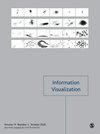GoCrystal:一个游戏化的可视化分析工具,用于分析和可视化原子构型和热力学能量模型
IF 1.8
4区 计算机科学
Q3 COMPUTER SCIENCE, SOFTWARE ENGINEERING
引用次数: 0
摘要
在本文中,我们介绍了GoCrystal,一个新的可视化分析工具,用于分析和可视化原子构型和热力学能量模型。GoCrystal的主要目标是支持视觉分析任务,通过游戏化来寻找和理解晶格中有利的原子模式。我们相信视觉分析任务的性能可以通过使用游戏化功能得到改善。为了确定哪种游戏化特征更适用于分析和探索原子构型及其相关的热力学自由能,进行了仔细的研究。此外,我们进行了一项用户研究,以确定GoCrystal及其游戏化功能在实现这一目标方面的有效性,并与没有游戏化作为对照组的传统视觉分析模型进行了比较。最后,我们报告了用户研究的结果,并演示了游戏化特性对理解原子配置所需的性能和时间的影响。本文章由计算机程序翻译,如有差异,请以英文原文为准。
GoCrystal: A gamified visual analytics tool for analysis and visualization of atomic configurations and thermodynamic energy models
In this article, we present GoCrystal, a new visual analytics tool for analysis and visualization of atomic configurations and thermodynamic energy models. GoCrystal’s primary objective is to support the visual analytics tasks for finding and understanding favorable atomic patterns in a lattice using gamification. We believe the performance of visual analytics tasks can be improved by employing gamification features. Careful research was conducted in an effort to determine which gamification features would be more applicable for analyzing and exploring atomic configurations and their associated thermodynamic free energy. In addition, we conducted a user study to determine the effectiveness of GoCrystal and its gamification features in achieving this goal, comparing with a conventional visual analytics model without gamification as a control group. Finally, we report the results of the user study and demonstrate the impact that gamification features have on the performance and time necessary to understand atomic configurations.
求助全文
通过发布文献求助,成功后即可免费获取论文全文。
去求助
来源期刊

Information Visualization
COMPUTER SCIENCE, SOFTWARE ENGINEERING-
CiteScore
5.40
自引率
0.00%
发文量
16
审稿时长
>12 weeks
期刊介绍:
Information Visualization is essential reading for researchers and practitioners of information visualization and is of interest to computer scientists and data analysts working on related specialisms. This journal is an international, peer-reviewed journal publishing articles on fundamental research and applications of information visualization. The journal acts as a dedicated forum for the theories, methodologies, techniques and evaluations of information visualization and its applications.
The journal is a core vehicle for developing a generic research agenda for the field by identifying and developing the unique and significant aspects of information visualization. Emphasis is placed on interdisciplinary material and on the close connection between theory and practice.
This journal is a member of the Committee on Publication Ethics (COPE).
 求助内容:
求助内容: 应助结果提醒方式:
应助结果提醒方式:


